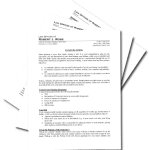Best Lawyers in Illinois
Share your needs with us, get contacted by law firms.
Free. Takes 2 min.
Or refine your search by selecting a city:
List of the best lawyers in Illinois, United States

United States Legal Questions answered by Lawyers
Browse our 38 legal questions in United States and read the lawyer answers, or ask your own questions for free.
- Internal investigation of sexual harassment in US
- I’m from [company removed], based in Hong Kong. One of my firm’s US employee reported to internal legal that I have sexually harassed her during my last trip to New York. An internal investigation is kicking off and I will be interviewed by firm legal. Also I have the opportunity... Read more →
-
Lawyer answer by M BILAL ADVOCATES, CORPORATE & TAX CONSULTANTS
If you are facing a sexual harassment allegation and an internal investigation in the U.S., do not submit a written statement or attend an interview without proper legal guidance. Anything you say can significantly impact your career, reputation, and potential...
Read full answer - Prenup Review and Signature
- I am looking for a Brazilian attorney to legally review a prenup with my fiancée. The prenup is only 18 pages written in both English and Portuguese. My fiancée speaks and reads English. The prenup follows USA/Virginia law. Once reviewed and signed by a lawyer with my fiancée, she can... Read more →
-
Lawyer answer by Castro Magalhães Law Offices
February 23, 2026 Proposal for Legal Services: Review of Prenuptial Agreement Dear Client, I am pleased to submit this proposal for the provision of legal services related to the review of a prenuptial agreement drafted in accordance with the laws...
Read full answer - Prenup Review and Signature
- I am looking for a Brazilian attorney to legally review a prenup with my fiancée. The prenup is only 18 pages written in both English and Portuguese. My fiancée speaks and reads English. The prenup follows USA/Virginia law. Once reviewed and signed by a lawyer with my fiancée, she can... Read more →
-
Lawyer answer by Castro Magalhães Law Offices
Castro Magalhães Sociedade Individual de Advocacia Carlos HB de Castro Magalhães OAB/RJ 080.783 | OAB/SP 501.014 Avenida Presidente Vargas, 3131, sala 604, Cidade Nova, Rio de Janeiro, RJ Avenida Paulista 1471, conjunto 511, CP 3622, Bela Vista, São Paulo, SP...
Read full answer
United States Legal Articles
Browse our 33 legal articles in United States written by expert lawyers.
- New York Climate Superfund Act Liability 2026 Guide
- This new US climate cost recovery law is retroactive and targets large historical greenhouse gas (GHG) emitters in energy, industrial, and logistics sectors as "responsible parties" for a $75 billion fund. Liability is strict: the government does not need to prove fault, negligence, or causation of specific climate harms, only... Read more →
- NY 2026 Corp Tax: Thresholds & Franchise
- For tax years beginning on or after January 1, 2026, New York businesses will only be required to make estimated tax payments if their expected New York tax (including any MTA surcharge) is at least $5,000, up from $1,000. Many small and some mid-sized New York corporations and S corporations... Read more →
- Are Non-Competes Enforceable in New York?
- Non-competes are still legal in New York and most of the United States, but courts apply strict scrutiny and often refuse to enforce broad, form agreements. Governor Hochul vetoed New York's broad non-compete ban (often referenced as S4641A / S3100A) in December 2023, so as of my last update there... Read more →
About Hiring a Lawyer in Illinois, United States
Hiring a lawyer in Illinois typically begins with identifying the area of law relevant to your issue, such as family law, criminal defense, personal injury, real estate, or business. Most people find attorneys by searching through the Illinois State Bar Association, local bar associations, or personal referrals. Once you have identified potential lawyers, you may schedule consultations, which are often free or reduced-cost for the first meeting. During these meetings, you can discuss your case, ask about the attorney’s experience, and learn about legal fees. After selecting a lawyer, you will likely sign an agreement outlining the scope of representation and payment terms. Lawyers in Illinois are regulated by the Illinois Attorney Registration and Disciplinary Commission, which maintains a database of licensed attorneys and any disciplinary actions.
Why You May Need a Lawyer
There are many circumstances in which Illinois residents may benefit from legal counsel. Some common situations include:
- Family Law Issues: Matters such as divorce, child custody, and adoption often require legal guidance to navigate complex laws and court processes.
- Criminal Charges: Whether facing a misdemeanor or a felony, having legal representation can protect your rights and help you understand your options.
- Personal Injury Claims: If you are injured in an accident, a lawyer can help you pursue compensation from responsible parties or insurance companies.
- Business Matters: Starting a business, drafting contracts, or dealing with disputes may require the help of a business attorney familiar with Illinois law.
- Real Estate Transactions: Buying, selling, or leasing property involves significant legal paperwork and potential risks, so legal review is often recommended.
- Employment Issues: Issues such as wrongful termination, discrimination, or wage disputes can be handled by employment lawyers.
- Estate Planning: Preparing wills, trusts, and powers of attorney ensures your wishes are followed and that your assets are protected.
Local Laws Overview
Illinois law is based on both state statutes and local ordinances, in addition to federal law. Key aspects of Illinois law that are especially important include:
- Court Structure: Illinois has circuit courts for most state matters, with appellate and supreme courts for appeals. Chicago and Cook County, in particular, have their own local rules.
- Attorney Regulation: Lawyers are regulated by the Illinois Supreme Court through the Illinois Attorney Registration and Disciplinary Commission (ARDC).
- Statutes of Limitation: Illinois law sets specific time limits for filing civil claims, such as two years for most personal injury cases.
- Community Property: Illinois is an equitable distribution state, not community property, meaning marital assets are divided fairly but not always equally in a divorce.
- Tenant and Landlord Law: There are detailed state laws, and certain cities have additional regulations, such as Chicago’s Residential Landlord and Tenant Ordinance (RLTO).
- Criminal Sentencing: Illinois has unique sentencing laws, including abolished use of the death penalty as of 2011 and reliance on mandatory minimums for some crimes.
Frequently Asked Questions
How do I find a reputable lawyer in Illinois?
You can search for lawyers using the Illinois State Bar Association, local bar directories, or the Attorney Registration and Disciplinary Commission’s database, which lists all licensed attorneys in the state.
What should I bring to my first meeting with a lawyer?
Bring any documents related to your case, identification, and a list of questions. The more information you provide, the better the lawyer can assess your situation and options.
How much do lawyers charge in Illinois?
Fees vary based on the type of case and the lawyer’s experience. Illinois lawyers may charge hourly rates, flat fees, or contingency fees (common in personal injury cases, where payment is made only if you recover money).
Is my consultation with a lawyer confidential?
Yes, discussions with a lawyer during a consultation are generally confidential, even if you do not hire that lawyer.
Can I get free or low-cost legal help in Illinois?
Yes, there are legal aid organizations and pro bono services for those who qualify based on income and case type.
How do I check if a lawyer has disciplinary issues?
You can check the Illinois Attorney Registration and Disciplinary Commission website for public records of attorney discipline.
What is a retainer agreement?
A retainer agreement is a contract specifying the relationship between you and your lawyer, including services, costs, and responsibilities.
How long will my case take?
The duration depends on the complexity of the case, court schedules, and other factors. Your attorney can provide an estimated timeline after reviewing your situation.
Can I switch lawyers if I am not satisfied?
Yes, you may change lawyers at most stages of your case, though you may be required to pay for services already rendered and notify the court if your case is in litigation.
Do I have to go to court if I hire a lawyer?
Not always. Many legal issues can be settled outside of court through negotiation or mediation. Your attorney will advise if a court appearance is necessary.
Additional Resources
-
Lawzana helps you find the best lawyers and law firms in Illinois through a curated and pre-screened list of qualified legal professionals. Our platform offers rankings and detailed profiles of attorneys and law firms, allowing you to compare based on practice areas, experience, and client feedback.
Each profile includes a description of the firm's areas of practice, client reviews, team members and partners, year of establishment, spoken languages, office locations, contact information, social media presence, and any published articles or resources. Most firms on our platform speak English and are experienced in both local and international legal matters.
Get a quote from top-rated law firms in Illinois, United States — quickly, securely, and without unnecessary hassle.
Disclaimer:
The information provided on this page is for general informational purposes only and does not constitute legal advice. While we strive to ensure the accuracy and relevance of the content, legal information may change over time, and interpretations of the law can vary. You should always consult with a qualified legal professional for advice specific to your situation.
We disclaim all liability for actions taken or not taken based on the content of this page. If you believe any information is incorrect or outdated, please contact us, and we will review and update it where appropriate.
Refine your search by selecting a practice area.
Accidents & Injuries
Banking & Finance
Bankruptcy & Debt
Business
Civil & Human Rights
Consumer Rights
Corporate & Commercial
Criminal Defense
Employment & Labor
Energy, Environment & ESG
Family
Immigration
Insurance
Intellectual Property
Lawsuits & Disputes
Media, Technology and Telecoms
Notary Services
Private Client
Real Estate
Browse law firms by city in Illinois
Refine your search by selecting a city.

































